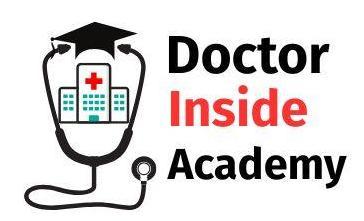
B Sc Medical Lab Technology
Duration
3+1 Years
Level
Under Graduation
Mode
Offline/Full Time
Overview of BSc Cardiology
The three-year undergraduate BSc Cardiology program focuses on diagnosing and treating heart-related diseases. For students to support a variety of cardiac care treatments, the course is aimed at providing them a solid foundation in both the theoretical and practical aspects of cardiovascular technology. It covers diagnostic methods, cardiac imaging, and medical equipment used in heart care.
Cardiovascular technology, often known as cardiovascular or cardiac sonography, is a specialty of medicine that focuses on diagnosing and treating heart and blood vessel diseases.
- Cardiovascular technologists, also referred to as cardiovascular sonographers or cardiovascular technicians, play an important role in helping cardiac surgeons to diagnose and treat a wide range of cardiovascular diseases.
- With the comprehensive course of study, students get both basic and advanced life support techniques while monitoring patients' cardiac functions throughout operations in the catheterization laboratory (Cath lab).
- The goal of the B.Sc. CVT program is to prepare students to help cardiologists identify and cure peripheral vascular and cardiac disorders in patients of all ages.

Duration of BSc Cardiac Care Technology
- The duration of BSc Cardiac Care Technology is 3 years, and a 1-year Internship is also included in this B.Sc Cardiology program.
Key Points of BSc Cardiac Care Technology
- The frequency of cardiovascular diseases is rising everywhere, including in India. The need for trained professionals who can help cardiologists diagnose and treat heart-related conditions is growing as the number of heart disease cases rises. Cardiovascular technology specialists are in high demand from hospitals, diagnostic facilities, and other healthcare organisations.
- Some of the most cutting-edge medical devices used in cardiac care may be learnt about and utilised by students pursuing a bachelor's degree in cardiology.
- Graduates are educated to handle state-of-the-art instruments essential for detecting cardiac disorders, such as operating echocardiography machines, utilising ECG equipment, and helping with cardiac catheterisation operations.

- Graduates with a bachelor's degree in cardiology are important for the healthcare system because they offer technical and life-saving diagnostic assistance.
- They help improve patient outcomes, lessen the workload for physicians, and increase the overall effectiveness of healthcare services by supporting a variety of cardiac treatments. Graduates of this program will be at the forefront of patient care and treatment as heart-related problems continue to grow.
BSc Cardiology Details
Particulars | Details |
BSc Cardiology Level | Undergraduation |
BSc Cardiac Care Technology Eligibility | +2 with PCB, 50% Marks |
BSc Cardiology Examination Type | Semesterwise |
BSc Cardiac Care Technology Duration | #+ Years |
BSc Cardiology Fees | INR 20k to INR 7 Lakhs* |
BSc Cardiac Care Technology Admission Criteria | Merit or Entrance-based |
BSc Cardiology Job Profiles | ICU Assistant, Dialysis Technician, Cardiovascular Technologist, Cardiac Sonographers/Echocardiographers, Cardiac Catheterization Technologists, Electrocardiography Technicians, etc. |
BSc Cardiac Care Technology Salary | INR 2.5 – 20 Lakhs* |
- *Note - Its an educational data only, realtime data may be differ may be from given value here. So please verify that first.
BSc Cardiology Eligibility Eligibility Criteria
- You must have passed your 12th from a recognised board with PCB (Physics, Chemistry, Biology) or PCM (Physics, Chemistry, Mathematics), with a minimum of 50 percent, and your age must be 17 years at the time of admission in BSc Cardiology courses.
- To evaluate ability, certain universities may provide entrance examinations or interviews. This includes full-time, offline classes involving classroom lectures, practical sessions, internships, and project work.

BSc RIT Admission Process
Fill out Our Enquiry Form
Profile Evaluation by Experts
Get a Call Back from Our Counsellors
Scope & Objectives of BSc Cardiac Care Technology
To provide effective cardiology services, the course of study teaches particular concepts alongside hands-on training. Graduates can pursue fulfilling careers in diagnostic services, clinical research, hospitals, and the medical device industry.

- There are several different career options available to someone with a bachelor's degree in cardiac technology. When a patient has problems with their heart, cardiac technologists help the doctor treat them.
- They can work at cardiac clinics, nursing homes, hospitals, etc. With just 5,000 cardiac technicians and 100,000 heart patients, there are several career choices for cardiac technologists. Additionally, they are hired based on their work experience. One can pursue further education in addition to finding employment.
- BSc Cardiovascular Technology focuses on applying modern medical techniques to diagnose and treat heart-related problems. Admission to the Bachelor of Science in Cardiovascular Technology program is usually determined by admission tests administered by medical or academic institutions or by merit.
- Many Indian medical schools and universities offer a Bachelor of Science in Cardiovascular Technology program that gives students a thorough theoretical understanding and practical training in cardiovascular diagnostics, interventional treatments, and patient care.
Syllabus of BSc Cardiology
The curriculum is divided into six semesters, each focusing on cat lab classes and practical scenarios. BSc Cardiology course of study makes sure that students get both theoretical knowledge and practical skills by striking a balance between classroom instruction and practical training.
The goal of the BSc Cardiac Care Technology program is to provide an in-depth knowledge of biomedical science with a focus on cath laboratory techniques and diagnostic processes.
Here is a detailed summary of the main subjects:
- Human Anatomy
- Human Physiology
- Biochemistry
- Pathology
- Pharmacology
- Electrocardiography
- Cardiac Catheterization
- Communication Skills
- Introduction to Cardiology
- Patient and Staff Safety & Infection Control
- Cardiac Devices
- Clinical Cardiology
- Pediatric Cardiology
- Cardiac Rehabilitation
- Emergency Cardiology
- Anesthesia and Critical Care
- Cardiac Diagnostic Techniques
- Basics of Cardiovascular Surgery
- Biostatistics
- Research Methodology
- Interventional Cardiology
- Cardiac Electrophysiology
- Cardiac Imaging Techniques
- Healthcare Management & Ethics
- Internships
- Project Work
- Hands on Training
- Cab Laboratory Instrumentation
Career Opportunities After BSc Cardiac Care Technology
Many graduates decide to continue their studies by enrolling in higher education programs, even though a B.Sc CVT degree offers interesting possibilities for employment in cardiovascular technology. Gaining specialist certificates or a master’s degree can improve your credentials and abilities, opening up more lucrative work options.

Cardiovascular Technologist

Catheterization Laboratory Technologist

ICU Assistant

Dialysis Technician

Nephrologist Technician

Echocardiography Technician

Cardiac Care Nurse

Cardiac Rehabilitation Specialist

Pacemaker Technicians

Teaching Faculty

Medical Sonographer

Research Assistant in Cardiology

Healthcare Administrator in Cardiology Departments
BSc Cardiology Salary in India
The salaries of a BSc Cardiac Graduate are primarily based on experience, location, workplace, and specialization.
Here’s an overview:
Role | Description | Annual Salary INR |
Cardiovascular Technologist | Performs diagnostic tests like EKGs and vascular studies. | 2.4 – 4.8 LPA |
Catheterization Laboratory Technologist | Assists in cardiac catheterization procedures and lab support. | 3.0 – 6.0 LPA |
ICU Assistant | Supports ICU staff, monitors vital signs, basic patient care. | 1.8 – 3.0 LPA |
Dialysis Technician | Operates dialysis machines, monitors patients with kidney failure. | 1.4 – 3.0 LPA |
Nephrologist Technician | Assists nephrologists in dialysis and kidney-related procedures. | 1.8 – 3.6 LPA |
Echocardiography Technician | Performs and analyzes echocardiograms. | 2.4 – 4.8 LPA |
Medical Sonographer | Conducts ultrasound scans of various body parts, including the heart. | 2.4 – 5.4 LPA |
Cardiac Care Nurse | Provides specialized nursing care for cardiac patients. | 3.0 – 6.0 LPA |
Research Assistant in Cardiology | Supports cardiology research projects, data collection, and analysis. | 1.8 – 3.6 LPA |
Pacemaker Technician | Programs and maintains cardiac pacemakers and ICDs. | 3.0 – 5.4 LPA |
Cardiac Rehabilitation Specialist | Develops and manages cardiac recovery and exercise programs. | 2.4 – 4.8 LPA |
Healthcare Administrator in Cardiology Departments | Manages administrative and operational aspects of cardiology units. | 4.8 – 9.6+ LPA |
Teaching Faculty | Educates students in medical colleges or training institutes. | 3.6 – 8.4+ LPA |
*Note – It depends on many factors; it’s an average metric shown here, for educational purposes only. Real-time statistics can vary from time to time and demand.
Get Free Counselling
FAQ BSc Cardiology
A good eye for detail and a strong interest in the sciences, particularly biology, are essential for pursuing a B.Sc. in cardiology. Since you’ll be interacting with patients and healthcare teams, effective communication skills are essential.
Typically, a B.Sc. program in cardiology lasts 3 to 4 years.
No, admission to the BSc Cardiology does not require NEET. Institution-specific entrance examinations and grades from the 12th grade, rather than NEET, are used to determine admissions.
No, the NEET is usually not required for a Bachelor of Science in Cardiovascular Technology.
The country, specialty area, degree of experience, particular job function, and healthcare institution or organization are some of the variables that might affect a Cardiovascular Technology (CVT) BSc (Bachelor of Science) graduate’s pay. Here is a broad summary of pay ranges: Level of Entry: INR 3-5 LPA, Mid-Level: 5-8 LPA INR, and Level Senior: INR 8–10 LPA.

